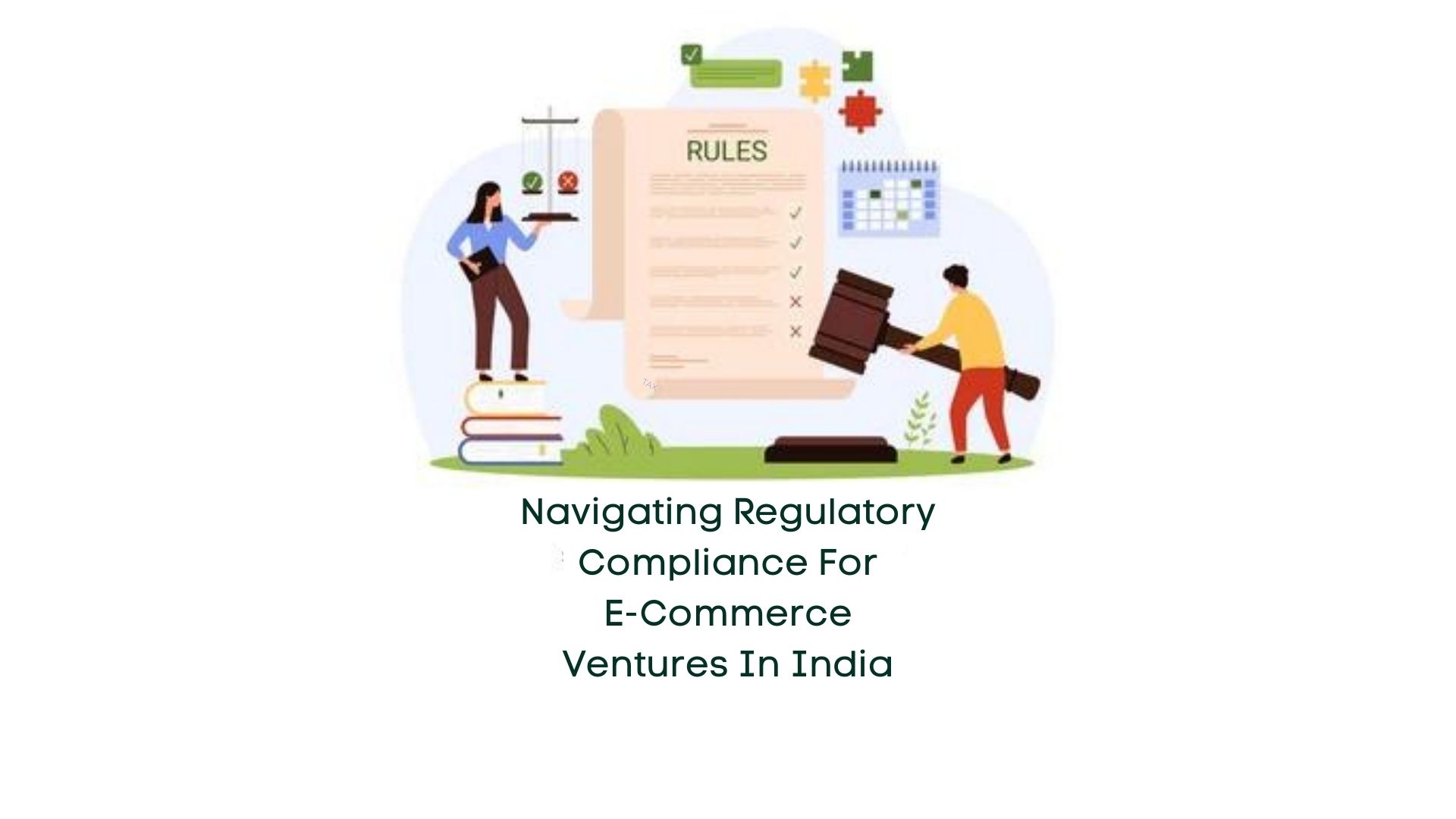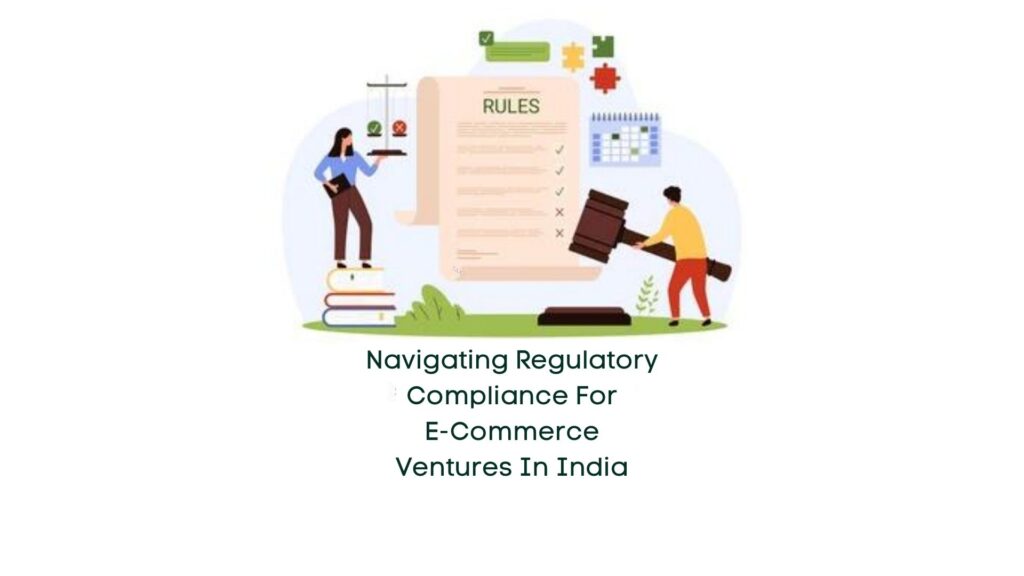
29 Feb Navigating Regulatory Compliance for E-Commerce Ventures in India

In the contemporary age of digitization, a significant portion of consumers is transitioning from traditional retail markets to online platforms such as Flipkart, Amazon, Snapdeal, Myntra, and others, seeking convenience and accessibility to products and services delivered to their doorstep.
With the market becoming increasingly customer-centric, businesses are following suit, migrating from traditional retail to online platforms. However, this shift necessitates adherence to various compliance requirements. E-commerce has revolutionized global business practices, and India, with its substantial population and demand, stands as a significant market in this regard.
The Indian government has introduced several initiatives aimed at bolstering the growth of e-commerce enterprises, including Digital India, Start-up India, Skill India, Make-in-India, and the Innovation Fund, among others.
Establishing an e-commerce entity in India involves several key steps:
Incorporation:
Every business entity must register with the Ministry of Corporate Affairs under the applicable laws, either as an Indian company under the Companies Act 2013 or as a foreign company with a branch/agency outside India, owned or controlled by an Indian resident.
Payment Gateway:
A payment gateway is essential for processing customer payments on e-commerce websites, facilitating transactions via debit/credit cards and net banking. Every e-commerce venture must integrate a payment gateway to enable online payments, with funds transferred to the company’s bank account.
Mandatory GST Registration:
As per the GST Act, selling products through online platforms like Amazon, Flipkart, and Snapdeal mandates GST registration. After obtaining GST registration, businesses can list their products on these e-commerce platforms, with no threshold exemption for sales through such channels.
Bank Account:
All e-commerce enterprises must operate an official bank account in India to conduct their business operations.
Legal Documentation:
Drafting and executing various legal agreements and contracts such as Website User Agreements, Employment Agreements, Memorandum of Association, Articles of Association, and Website Privacy Policies are imperative.
Data Protection:
E-commerce entities in India must ensure compliance with laws pertaining to data protection, including maintaining data privacy, security, confidentiality, and cyber laws.
Competition Issues:
Adherence to India’s competition laws is crucial for e-commerce entities when entering into agreements with relevant parties.
Applicability of Other Laws:
New guidelines issued by the Indian government mandate specific disclosures on e-commerce portals, such as mentioning the country of origin for imported products and expiry dates for perishable goods, to avoid legal ramifications.
Information Technology Act 2000:
E-commerce entities based outside India must appoint a resident individual in India to ensure compliance with the Consumer Protection Act, 2019, and Consumer Protection Rules, 2020.
Compliance with tax regulations under the Income Tax Act and GST for e-commerce businesses includes:
Filing of GST TDS/TCS Returns:
E-commerce operators must collect TCS and file returns as per GST provisions.
Filing of GST Returns: Failure to file GSTR-1 and GSTR-3B can lead to GST registration cancellation, emphasizing the importance of timely return filing.
Deduction of TDS U/s 194 of Income Tax Act:
E-commerce operators are required to deduct TDS at the time of credit/payment to e-commerce participants, necessitating Income Tax return filing to claim the deducted amount.
Deduction of TDS by Dealer:
Dealers with turnover exceeding Rs. 1 crore may need to deduct TDS under applicable provisions, including payments to e-commerce platforms, ensuring compliance to avoid complications.
In the diverse landscape of e-commerce, various models such as B2B, B2C, C2C, and C2B offer distinct opportunities and challenges, necessitating tailored strategies for success.


No Comments